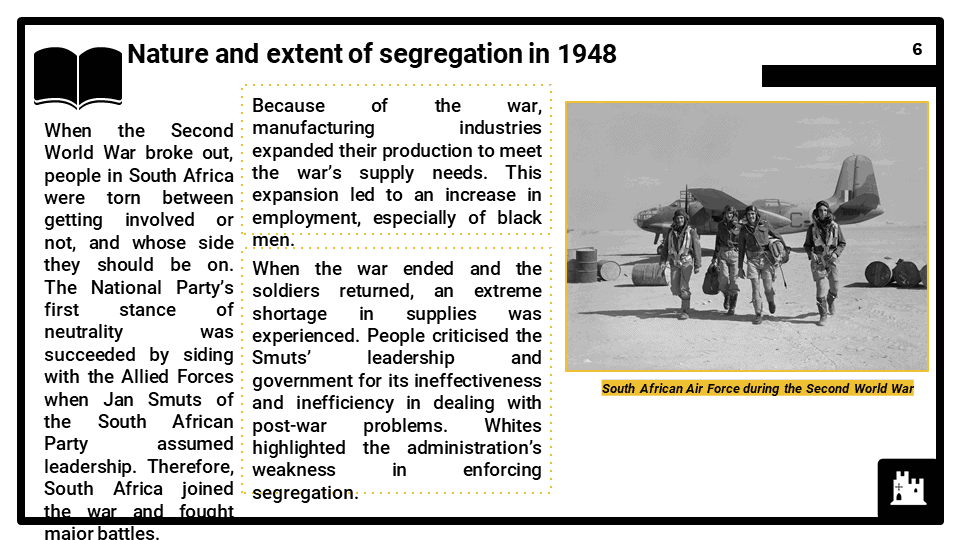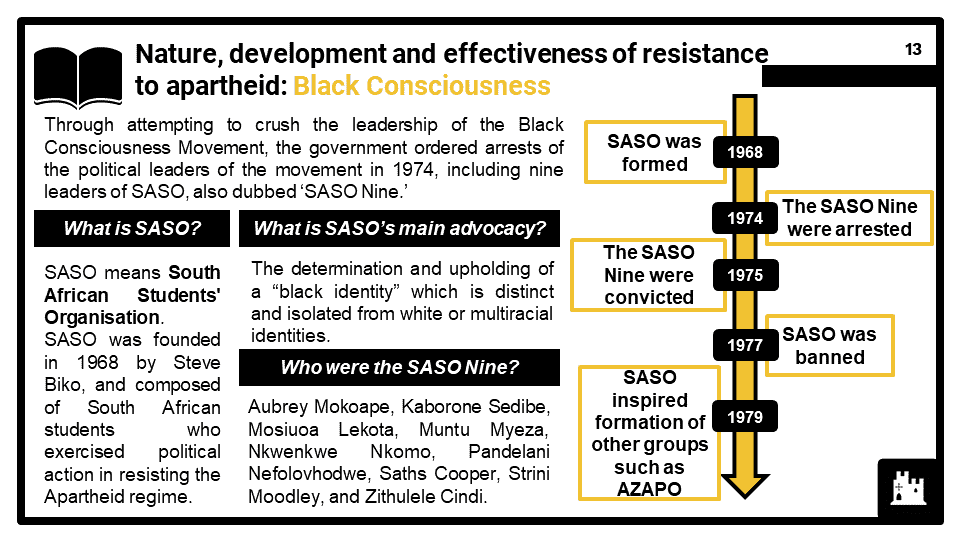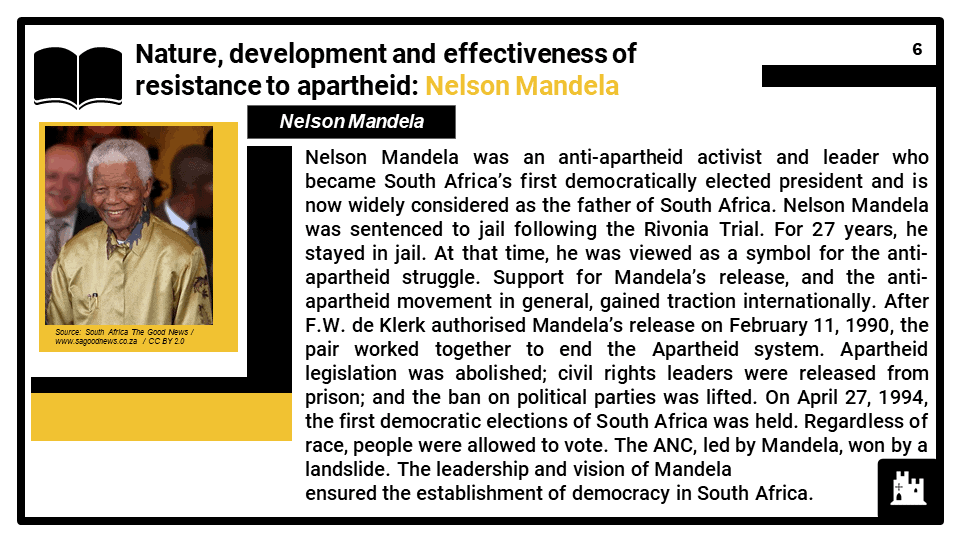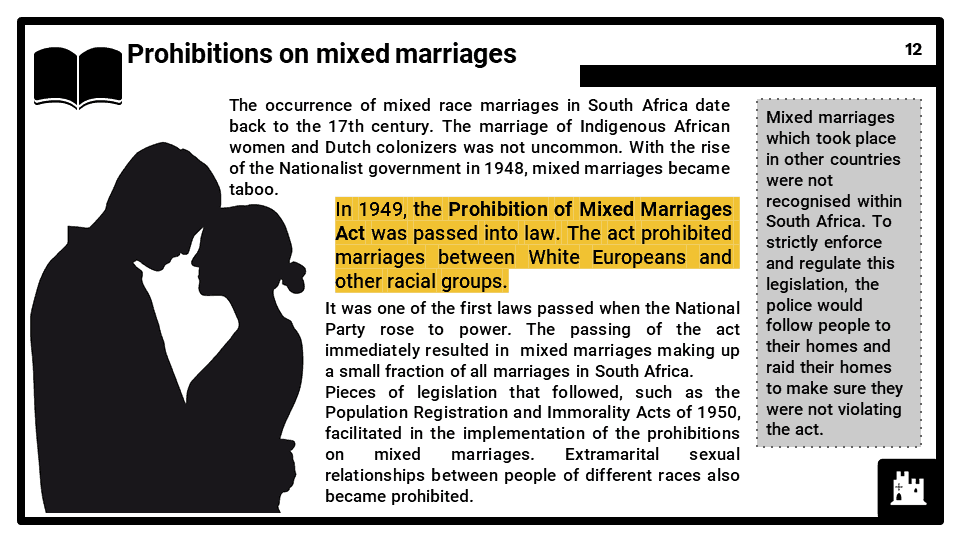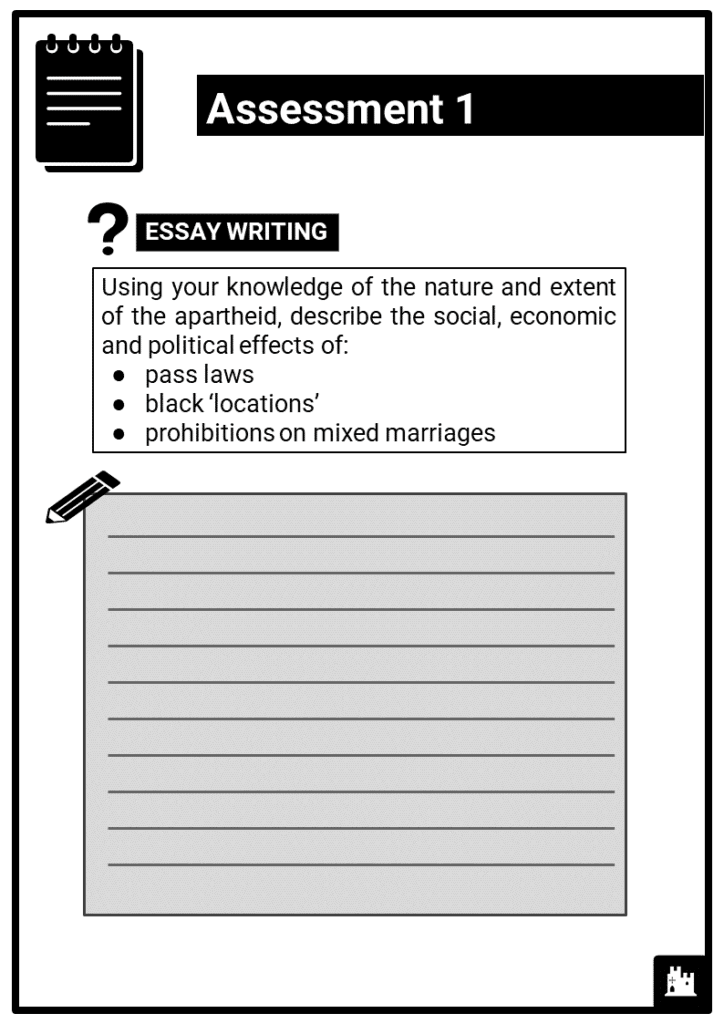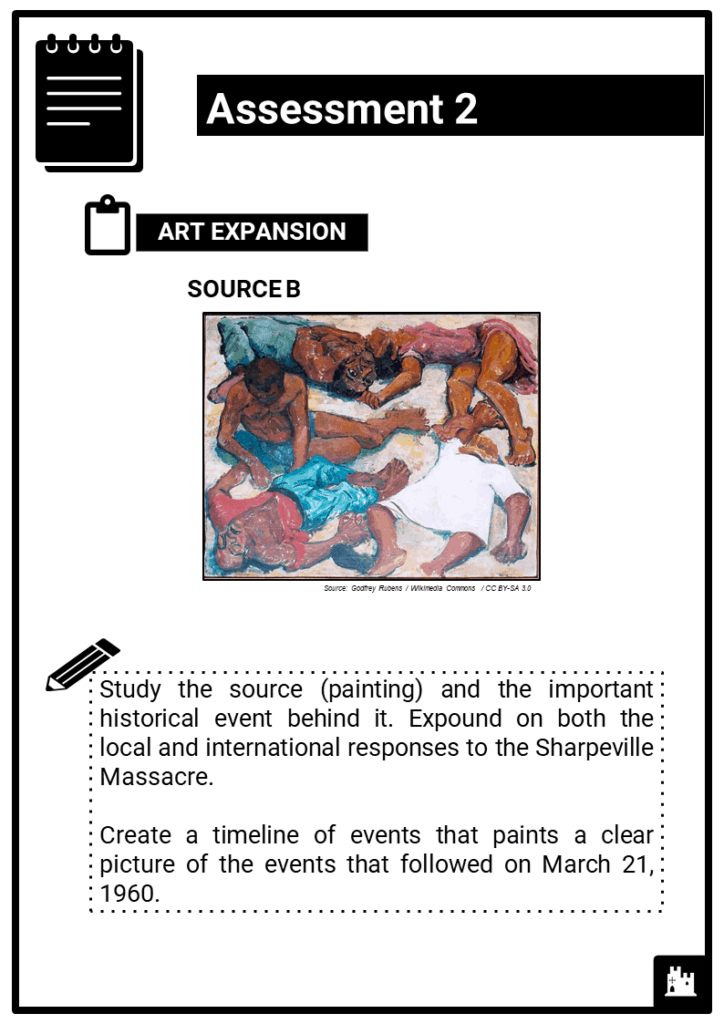Teach any WJEC module : Changes in South Africa, 1948-1994, no prep needed!
Do you want to save dozens of hours in time? Get your evenings and weekends back? Be fully prepared to teach any WJEC GCSE topic?
Every WJEC topic is covered, and each module comes complete with:
Studies in Depth – History with a European / world focus
Written examination: 1 hour 25% of qualification 50 marks (plus 3 marks for spelling, punctuation and grammar and the use of specialist language)
Learners study one Study in Depth from four options in total. This unit focuses study on a substantial and coherent short time scale in the history of a society in Europe or the wider world. This unit will provide learners with the opportunity to understand the complexity of a society in the history of Europe or the wider world more effectively. This unit also allows learners the opportunity to study history within a wider geographical context. This unit encourages learners to use a wide range of historical sources. Learners will also have the opportunity to create a variety of historical responses.
Unit 2: Studies in Depth
Sub-section: History with a European / world focus
Module: 2D Changes in South Africa, 1948-1994
This option focuses in-depth on selected themes and issues relating to the history of South Africa from 1948-1994. Candidates will be required to consider the establishment of the apartheid state, the growth of opposition to apartheid and the eventual ending of the apartheid system. Candidates should develop their understanding of South Africa in this period through explanation and analysis of key concepts such as causation, change and continuity and significance and through analysing and evaluating a range of source material. The required content below shows which key features and characteristics of the period must be studied.
Key Questions and Required Content
- The apartheid system: Why was the apartheid system established?
- South Africa in 1948; the results of the election of 1948; main apartheid laws,1949-1956; changes under Verwoerd 1958-1966; creation of self-governing homelands and Bantustans.
- The effects of the apartheid system: What was the effect of the apartheid system on life and work?
- Education and employment; segregation in society; forced movement to and life in the new townships; increase in police powers: banning orders, detentions, torture, censorship.
- Opposition to apartheid in South Africa: What were the main methods of opposition to apartheid.
- The work of the ANC; the Defiance Campaign; the Freedom Charter; the Treason Trials; Sharpeville and its consequences; actions of the ANC and PAC; the Rivonia Trial; Soweto and its consequences.
- The role of key individuals: What was the role and influence of key individuals in the campaign against apartheid?
- The role of political activists including Mandela, Sisulu, Tambo, Sobukwe, Biko, Buthelezi; the role of women including Lilian Ngoyi, Helen Suzman and Winnie Mandela; role of church leaders including Huddleston and Tutu
- International opposition: How effective was international opposition to apartheid?
- The OAU; the Lusaka Manifesto; SWAPO; United Nations; South Africa leaving the Commonwealth; international pressure: economic sanctions and boycotts, the Anti-Apartheid Movement.
- Changes to the apartheid system: Why did the apartheid system change during the Presidencies of Botha and de Klerk?
- Botha and the 'New Realism'; constitutional changes 1983-84; relaxation of some apartheid laws; black resistance in the townships; the emergence of the UDF; de Klerk's new course.
- The ending of the apartheid system: Why and when did the apartheid system end?
- CODESA; the constitutional agreement of November 1993; the General Election of April 1994; 'Truth and Reconciliation'; improving international relations.

